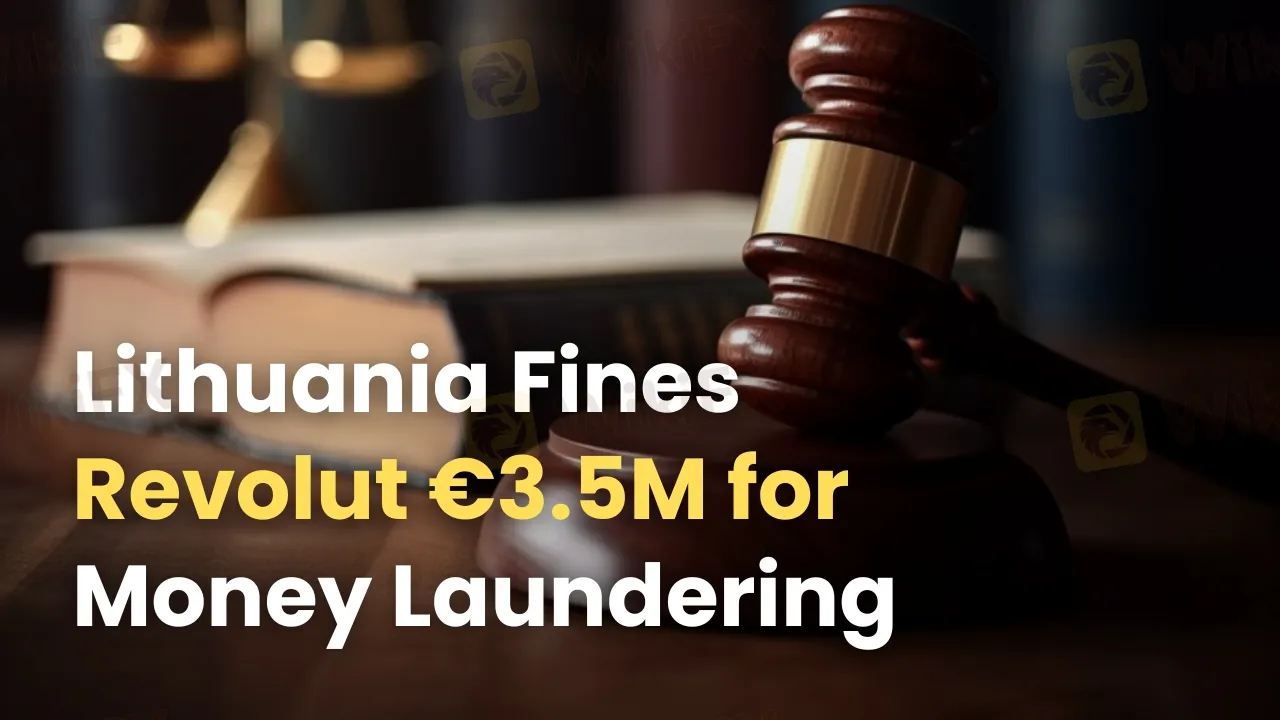简体中文
繁體中文
English
Pусский
日本語
ภาษาไทย
Tiếng Việt
Bahasa Indonesia
Español
हिन्दी
Filippiiniläinen
Français
Deutsch
Português
Türkçe
한국어
العربية
Lithuania Fines Revolut €3.5M for Money Laundering Failures
Abstract:Lithuania‘s central bank fines Revolut €3.5M for money laundering prevention lapses. Learn about the investigation, Revolut’s response, and its impact on fintech.

Lithuanias central bank has handed down a staggering €3.5 million ($3.83 million) fine to Revolut, the British fintech powerhouse, for weaknesses in its efforts to prevent money laundering. This penalty, the biggest ever from the bank, came after a standard review exposed serious flaws in how Revolut tracked its business dealings and activities.
The central bank pointed out that these missteps left Revolut unable to spot questionable transactions effectively. In response, Revolut stressed that the probe didnt uncover any real “money laundering” cases. Rather, it highlighted spots where their current safeguards could use some work. The firm insisted it takes regulatory rules seriously and has teamed up with Lithuanian officials to fix the problems.

The size of the fine mirrors both the weight of the slip-ups and Revolut‘s hefty footprint in the European Economic Area (EEA). Revolut Holdings Europe, which handles the company’s regulated operations in the region, raked in a record £438 million ($559.5 million) in pretax profit in 2023. With a valuation hitting $45 billion in August, Revolut stands tall as a major force in the worldwide fintech scene.
On another front, Revolut has joined forces with Visa to push back against the UK Payment Systems Regulator‘s (PSR) plan to cap interchange fees. The duo argues that such limits would choke competition and slow down fresh ideas in the fintech world. They warn that the PSR’s move might force banks to trim perks like rewards or tack on new charges, hitting customers in the wallet. Visa added that slashing interchange fee income could stunt growth and weaken the markets competitive edge.
This fine puts Revolut at a crossroads, juggling regulatory hurdles while holding its ground as a top fintech contender. How it handles these challenges could steer its path forward and define its standing in the tightly controlled financial landscape.

Disclaimer:
The views in this article only represent the author's personal views, and do not constitute investment advice on this platform. This platform does not guarantee the accuracy, completeness and timeliness of the information in the article, and will not be liable for any loss caused by the use of or reliance on the information in the article.
Read more

Thailand-Cambodia War Pressures Thai Baht in Forex Market
The ongoing conflict between Thailand and Cambodia has put immense pressure on the Thai Baht, impacting the forex market and investor sentiment. Read on for more.

Bitget Lists Caldera for Spot Trading | What Should You Know?
Bitget, a cryptocurrency exchange and Web3 company, has listed Caldera (ERA) for spot trading. Caldera is a rollup platform built on Ethereum. It is designed to allow horizontal scaling and interaction between different rollups.

Israeli Businessman Arrested in Morocco Over Forex Fraud
An Israeli businessman faces extradition to Germany after his arrest in Morocco, charged with defrauding German investors in a forex scam. Interpol issued the arrest warrant.

Dubai Police Arrests 4 People in Connection with High and Quick Profits Online Trading Scam
Dubai Police have arrested four individuals involved in defrauding many investors via fake online trading schemes that promised high and quick returns. Check out the arrests, international connections, and more in this story.
WikiFX Broker
Latest News
Samsung Electronics signs $16.5 billion chip-supply contract; shares rise
Does XS.com Hold Leading Forex Regulatory Licenses?
European stocks set to rise after the U.S. and EU strike trade agreement
Elon Musk confirms Tesla has signed a $16.5 billion chip contract with Samsung Electronics
Chile Bumps Up Copper Price Forecast and Flags Lagging Collahuasi Output
Global week ahead: Crunch time for trade talks as Trump's deadline nears
Top Wall Street analysts recommend these dividend stocks for regular income
Stock futures rise as U.S.-EU trade deal kicks off a hectic week for markets: Live updates
Treasury yields tick lower as investors look ahead to Fed's interest rate decision
Bitget Lists Caldera for Spot Trading | What Should You Know?
Currency Calculator


